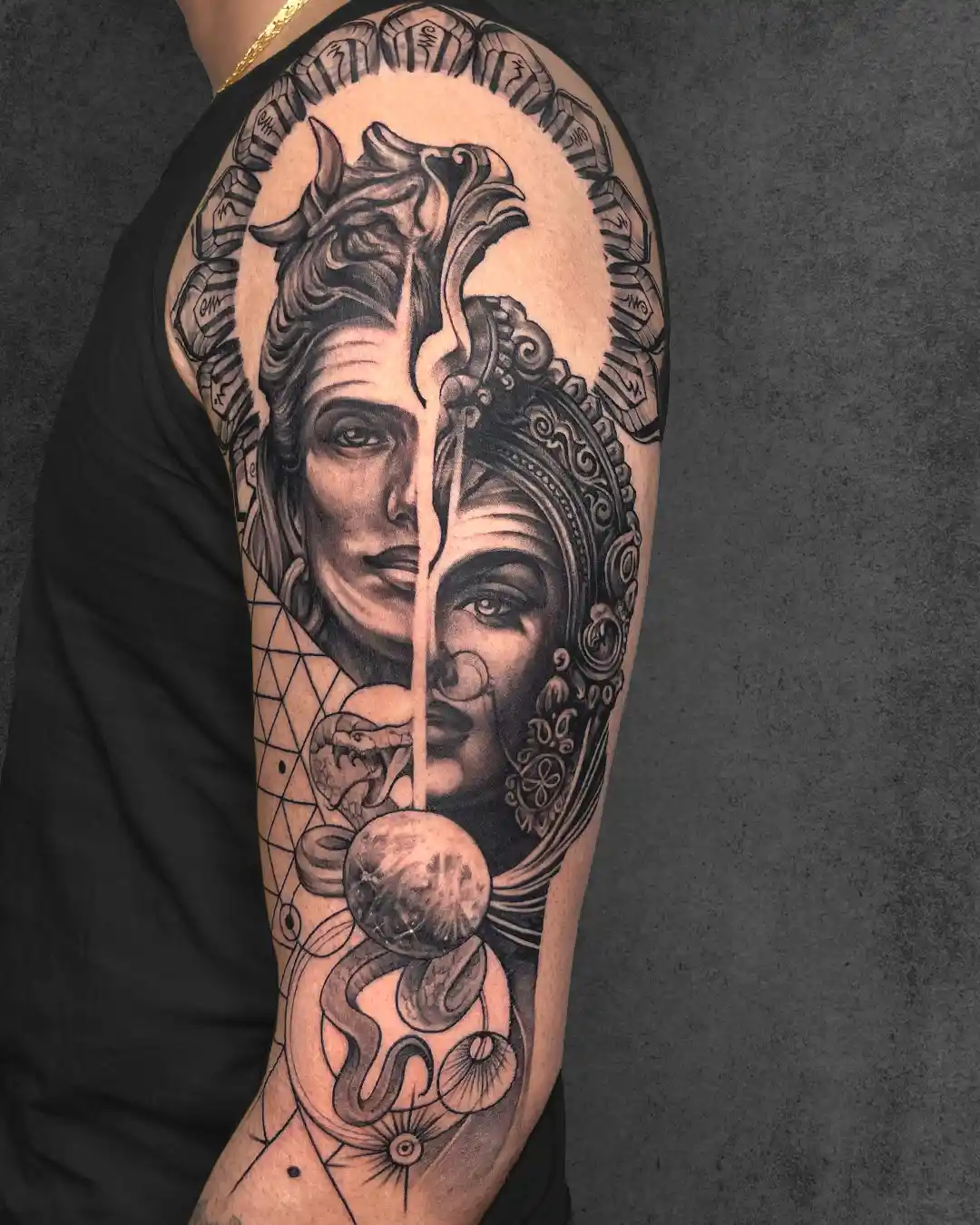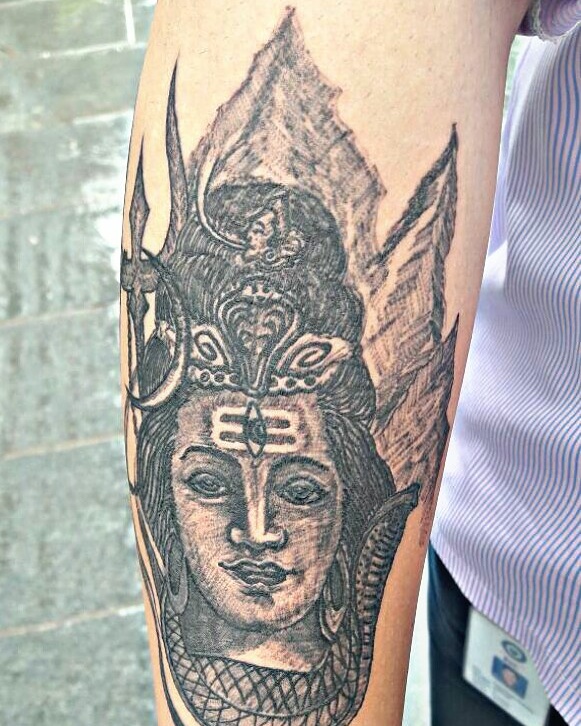The allure of tattoos has transcended cultures and time, becoming a canvas for self-expression and spiritual exploration. Among the myriad designs that adorn the skin, Shiva tattoos stand out for their profound significance and deep-rooted connection to spirituality. Representing one of the principal deities in Hinduism, Lord Shiva embodies transformation, destruction, and creation, making his image a powerful symbol for those who seek to embrace the multifaceted nature of existence.
Choosing to wear a Shiva tattoo is not merely a fashion statement; it is an embodiment of devotion and a reminder of the divine principles that govern life. For many, these tattoos serve as a connection to the divine, a way to honor the teachings and philosophy that Shiva represents. From intricate designs capturing the essence of his form to symbolic representations of his attributes, Shiva tattoos invite wearers to reflect on their spiritual journeys while celebrating the strength and resilience that stem from embracing one’s true nature.
Cultural Significance of Shiva Tattoo s
Shiva tattoos hold deep cultural significance within Hinduism, echoing the attributes and qualities associated with Lord Shiva, one of the principal deities in the religion. Often referred to as the "destroyer" within the holy trinity of Brahma, Vishnu, and Shiva, he represents transformation, change, and the cyclical nature of existence. Hence, many individuals choose to commemorate their connection with these concepts through a Shiva tattoo, symbolizing their journey of self-discovery and spiritual evolution.
The imagery of Shiva in tattoos often incorporates important elements such as the trident, the serpent, or the crescent moon, each bearing its own meaning. For instance, the trident symbolizes the three fundamental aspects of reality, and the serpent represents the energy of life and death. These symbols are not only visually striking but also serve as profound reminders of the complexities of life and the balance between creation and destruction that Shiva embodies. Thus, https://www.shivatattoo.in/category/shiva-tattoo-small as personal talismans reflecting one’s beliefs and aspirations.
Beyond personal significance, Shiva tattoos also foster a sense of community and belonging among believers. When individuals showcase such tattoos, they often express a shared cultural and spiritual identity that resonates within the larger context of Hindu tradition. This cultural resonance fosters connections among diverse individuals, creating bonds over shared values of spirituality, devotion, and respect for life's dualities as expressed through the figure of Shiva.
Common Designs and Symbols
Shiva tattoos often incorporate a range of intricate designs that reflect the various aspects of this powerful deity. One of the most common symbols associated with Shiva is the trident, known as the trishula. This weapon not only signifies his role as a destroyer of evil but also represents the three fundamental aspects of existence: creation, preservation, and destruction. When tattooed, the trishula can be depicted in ornate styles, sometimes intertwined with other elements like flowers or mandalas, giving it a unique and personal touch.

Another significant element found in Shiva tattoos is the serpent, which typically coils around his neck. The snake symbolizes the eternal cycle of life and death, as well as rebirth. Tattoos featuring this symbol can convey a sense of strength and transformation. Artists often enhance the depiction of the serpent with vibrant colors or intricate patterns, creating a dynamic visual that captures Shiva’s energy and mystique.

The Om symbol is also frequently incorporated into Shiva tattoos, as it embodies the essence of the universe and is considered sacred in Hindu philosophy. When combined with images of Shiva, it enhances the spiritual significance of the tattoo, signifying the connection between the self and the divine. Many tattoos showcase Om in harmony with other symbols like the mandala or lotus, creating a fusion of visual elements that encapsulate tranquility and enlightenment.
Emotional and Spiritual Connection
The choice to get a Shiva tattoo often stems from a deep emotional and spiritual connection to the deity, resonating with the symbolism of transformation, protection, and divine guidance. For Trishul Shiva Tattoo , Lord Shiva represents the ultimate source of energy and consciousness, making the tattoo not just an aesthetic choice but a personal testament to their beliefs and experiences. This connection can evoke a sense of peace, strength, and resilience, encouraging the individual to embrace their spiritual journey.
Many devotees find that a Shiva tattoo serves as a constant reminder of their inner strength and the cyclical nature of life, death, and rebirth. As they navigate the challenges of life, the tattoo acts as a protective emblem, providing comfort and fortitude in difficult times. The intricate designs and meaningful representations of Shiva, such as the trident or the crescent moon, can guide the wearer towards maintaining harmony in their life while honoring the divine presence that watches over them.

In a world often filled with chaos and uncertainty, the emotional and spiritual significance of a Shiva tattoo allows individuals to express their devotion and alignment with universal truths. This ink becomes an enduring symbol of faith and a connection to the divine, providing a source of inspiration for personal growth and spiritual exploration. The tattoo, therefore, transcends mere body art, becoming a sacred expression of an individual’s commitment to their beliefs and a visual representation of their inner self.
